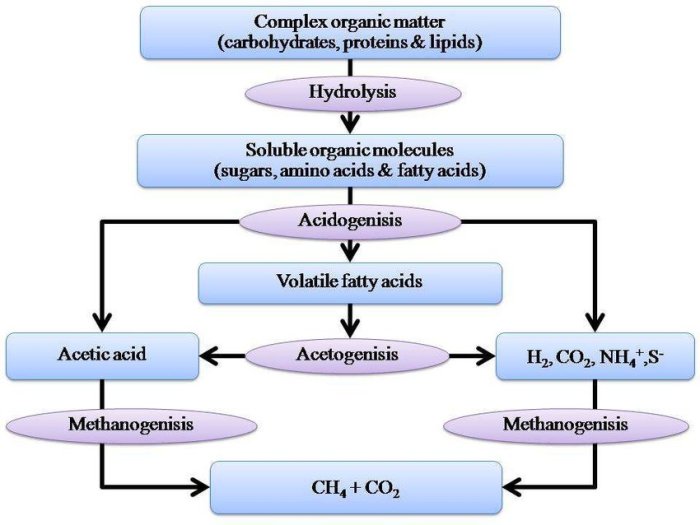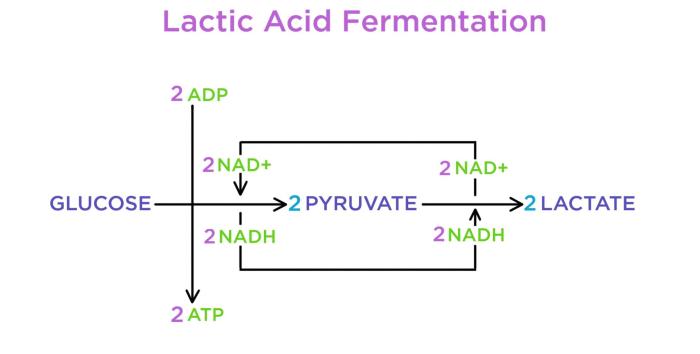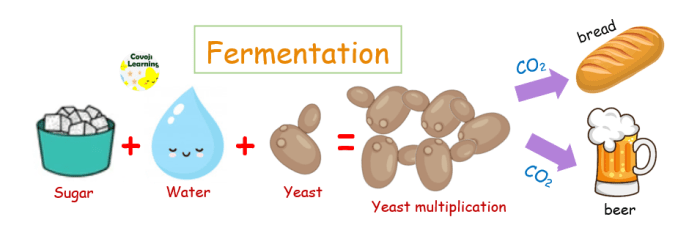Identify all correct statements about the basic function of fermentation. – Embark on a journey into the realm of fermentation, a transformative process that harnesses the power of microorganisms to produce a vast array of products that touch every aspect of our lives. From the delectable flavors of fermented foods to the groundbreaking advancements in medicine, fermentation has played an integral role in shaping human civilization.
In this comprehensive guide, we delve into the fundamental principles of fermentation, exploring its role in energy production, industrial applications, and medical breakthroughs.
Fermentation, the anaerobic breakdown of organic compounds, is a metabolic process that releases energy and produces diverse end products. Microorganisms, such as bacteria and yeast, orchestrate this intricate process, converting simple sugars into a variety of substances, including acids, alcohols, and gases.
This remarkable ability has led to the development of numerous fermentation-based industries, including food production, pharmaceuticals, and biofuels.
Basic Function of Fermentation: Identify All Correct Statements About The Basic Function Of Fermentation.

Fermentation is a metabolic process in which microorganisms, such as bacteria and yeast, convert sugars into acids, gases, or alcohol. This process occurs in the absence of oxygen, making it an anaerobic process. During fermentation, microorganisms break down glucose and other sugars to produce energy and various byproducts.
Fermentation plays a crucial role in the food industry, as it is used in the production of bread, cheese, yogurt, and alcoholic beverages. It is also essential in the preservation of food, as fermented foods have a longer shelf life due to the production of lactic acid, which inhibits the growth of spoilage bacteria.
Role of Microorganisms in Fermentation, Identify all correct statements about the basic function of fermentation.
Microorganisms are responsible for carrying out fermentation. Different types of microorganisms produce different fermentation products. For example, bacteria are involved in the fermentation of milk to produce lactic acid, while yeast is responsible for the fermentation of sugars to produce alcohol and carbon dioxide.
Common Fermentation Products
Fermentation produces a wide range of products, including:
- Lactic acid (produced by lactic acid bacteria)
- Alcohol (produced by yeast)
- Carbon dioxide (produced by yeast)
- Butyric acid (produced by Clostridium bacteria)
- Propionic acid (produced by Propionibacterium bacteria)
Question & Answer Hub
What is the primary function of fermentation?
Fermentation serves as an anaerobic energy-generating mechanism for microorganisms, enabling them to convert organic compounds into diverse end products.
How does fermentation differ from cellular respiration?
Unlike cellular respiration, fermentation occurs in the absence of oxygen and yields a lower energy output in the form of ATP.
What are some common examples of fermentation products?
Fermentation produces a wide range of products, including ethanol (alcoholic beverages), lactic acid (fermented dairy products), and acetic acid (vinegar).

